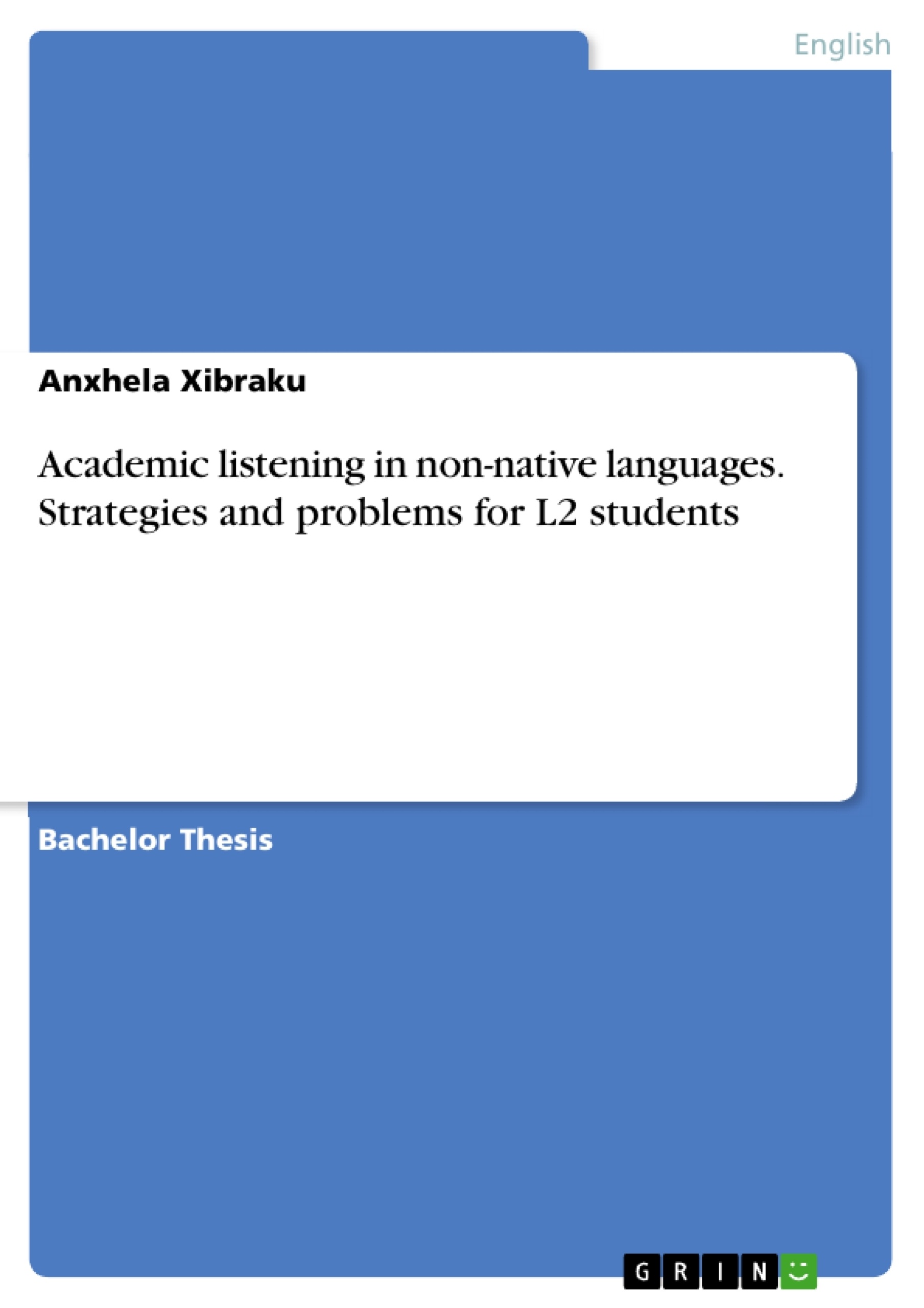This study explains the listening difficulties the L2 student experiences in non-native language classrooms and the strategies to improve L2 student listening skills. After general and specific review regarding the importance of listening, this paper addresses the frustrations for the L2 student, and then offers teacher strategies to calm student learning/listening anxieties.
The purpose of this paper is to remind everyone about the importance of listening, to remind ordinary people, students, professors. This paper will make them rethink; also, it will help them with the solutions. “Listening” has its own frustrations and anxieties. So additionally, this paper will have us consider these frustrations and anxieties and arrive at smart simple solutions to facilitate listening for everyone.
Listening is a complex process and the reason why students face difficulties even if they have high language competence. This paper looks at these difficulties that students face during academic listening and listening the anxiety and its theories. Also, reviews the relation of student- professor during the listening process. Students learning a second language confront different stages; there are shown five stages of listening comprehension, and the advance of listening during the five stages. There are the techniques of reduction of anxiety and students help in listening activities. In this paper are given the best listening strategies, methods, modification of language process, and the effects of four types listening support.
Inhaltsverzeichnis (Table of Contents)
- ABSTRACT
- ACKNOWLEDGEMENT
- DEDICATION
- LIST OF ABBREVIATIONS
Zielsetzung und Themenschwerpunkte (Objectives and Key Themes)
This paper examines the challenges faced by L2 learners in acquiring listening skills, exploring the obstacles they encounter and proposing strategies to improve their listening proficiency. The study aims to provide insights into the difficulties experienced by L2 students in non-native language environments and to offer practical solutions for teachers to mitigate student anxieties and enhance listening comprehension.
- Listening difficulties for L2 students
- Strategies for improving listening comprehension
- Teacher strategies to alleviate student anxieties
- The importance of listening in language learning
- The role of student anxiety in language acquisition
Zusammenfassung der Kapitel (Chapter Summaries)
The paper begins by exploring the importance of listening in language acquisition, highlighting its significance for achieving proficiency in L2. It then delves into the specific challenges and frustrations experienced by L2 learners in the listening process. The study further examines the impact of student anxiety on learning, providing insights into how it affects listening comprehension. Finally, the paper proposes effective teacher strategies aimed at reducing anxiety and promoting positive learning experiences, thereby enhancing listening skills.
Schlüsselwörter (Keywords)
The main keywords and focus topics include language proficiency, student anxiety, teacher methods, ESL, EFL, L2, listening skills, and language acquisition.
Frequently Asked Questions
Why is academic listening difficult for L2 students?
Listening is a complex process; students often face challenges due to high language demands, speed of delivery, and academic vocabulary, even if their general competence is high.
How does anxiety affect listening skills?
Listening anxiety can block a student's ability to process information, leading to frustration and decreased comprehension in a non-native classroom.
What are the five stages of listening comprehension?
The paper reviews five developmental stages that L2 learners go through as they advance their listening skills from basic recognition to full academic understanding.
What strategies can teachers use to help L2 students?
Teachers can modify their language, provide visual support, and use specific anxiety-reduction techniques to facilitate a better learning environment.
What is "listening support" in this context?
The paper discusses four types of listening support that assist students in processing academic content more effectively during lectures.
- Quote paper
- Anxhela Xibraku (Author), 2017, Academic listening in non-native languages. Strategies and problems for L2 students, Munich, GRIN Verlag, https://www.grin.com/document/592163



